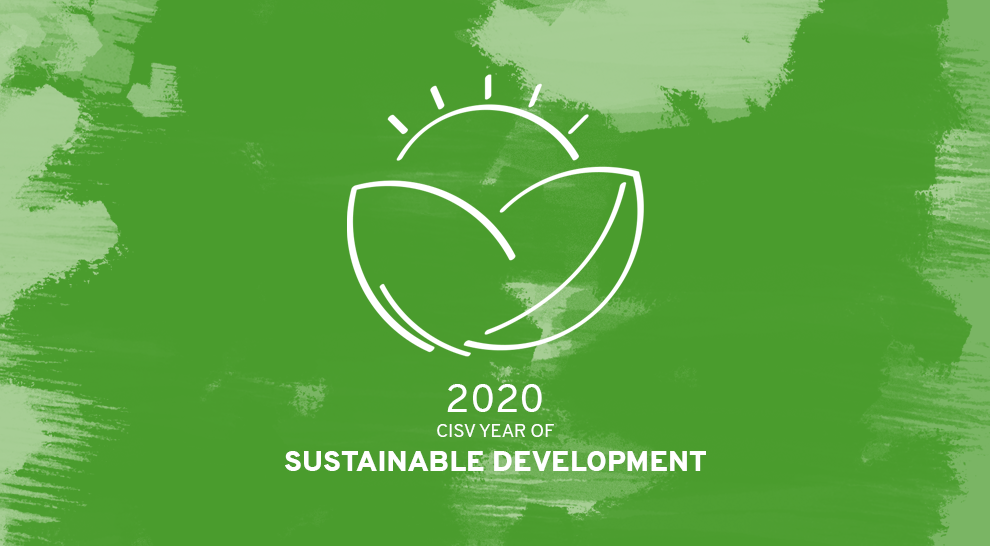
Introducing Conflict and Resolution
February 14, 2019
How Do You Define Conflict?
March 26, 2019Conflict Resolution and Culture in the CISV World
What is Conflict Resolution?
Although there are many ways to approach the definition of Conflict Resolution, in very general terms, we can understand it as a methodology that effectively gets two or more parties’ needs and disagreements resolved through finding a peaceful solution with the aim of restoring peace and cooperation.
Conflict is present all the time in our daily lives: in our homes, our schools, our universities, our jobs, our relationships and – yes, you guessed it – in CISV!
Conflicts are a form of human activity and, as such, humans have created diverse ways in which to tackle this in our day to day life. Conflict is acknowledged as an important aspect of modern management in today’s world, one where we are more connected than ever before. In our schools, universities, and jobs we are constantly required to work with people, to work in teams. When you think about the work we do in CISV specifically, it comes down to the facilitation and ‘management’ of people – their ideas, their perspectives, and their passions. Within the CISV world, it is important to see conflict as a positive aspect, one that challenges us to dig deeper into our understanding, to be empathetic, and to practice what we preach throughout all levels of our organization.
Think for a minute about any kind of conflict that you have dealt with in CISV. Maybe a time where you, alongside the leaders group, were dealing with an issue at a programme? Or a time where you were planning a project with an international team of CISVers through emails and Skype? Or maybe a time where you, as a Chapter member, had to deal with a conflict with participants in host families? In CISV we are not only dealing with conflict, we are dealing with conflict in a multicultural environment, and it’s important to keep that in mind at all times.
Culture, Culture, Culture
In academia, there are hundreds of theories on conflict resolution, but there’s one thing they all share: they are focused on human nature. We, as individuals, use these theories to shape our behaviour, and the behaviour of others, into meaningful forms. Different cultures have different understandings of what causes conflict and what response is appropriate – and that, my friends, is big part of CISV. For example, let’s think about simulation games and how different actions trigger different reactions from participants, what becomes an issue for one person can easily differ completely from the other. Another example could be our perspective on time and being on time. For many cultures being a little late to an event may not be an issue, while for others is a sign of disrespect. These are just a couple of examples that we witness in our CISV work and our programmes.
With this in mind, we must talk about the way we analyze culture. When dealing with conflict in CISV it is important to work towards understanding, to the best of our ability, the background and beliefs of everyone in the room. Understanding the significance of an event within its own cultural context is the first step towards finding solutions.
In many cases, intercultural conflicts come as the result of misinterpretations and misunderstandings. Let’s take the easiest example: we don’t all speak the same language. Interpretation and translation is a constant conflict we face in CISV. Even if all of our programmes are held in English, those of us who are not native speakers can perceive things in very different ways. And when it comes to culture, even if we happen to share the same native language, we can easily understand things differently depending on our background.
And that’s the beautiful challenge that we are constantly working with in our diverse programmes. Culture shapes how we understand incompatibility, which reactions are appropriate, and what solutions look like. Resolving conflicts does not mean one solution wins over the other. It means finding common ground within different parties.
Understanding culture and asking questions, gives us an insight into why different factors and actions are valued within different conflict situations. Working on understanding culture and asking questions to understand more fully is the best thing to do when searching for solutions that work for that specific conflict in that specific space.
Addressing and resolving conflicts between cultures requires us to have cultural sensitivity, to acknowledge the diverse emotions and roles we play when encountering a conflict in a multicultural environment. It’s about open-mindedness, empathy, interaction, involvement, suspending judgment, and being a question-enthusiast!
To kick off our journey through the content area of the year, let’s keep this in mind for all the multicultural moments ahead and try to reflect and understand more fully different cultures and our own.
We look forward to bringing great content to all of you with the aim of diving deep into the content area of the year. We will be sharing innovative and creative ideas on how to work with Conflict Resolution in all our trainings and programmes. If you have a specific topic that you would like us to write about – don’t hesitate to let us know!
On behalf of the amazing Conflict and Resolution Annual Content Area Working Group,
Caro Santos
CISV Ecuador





3 Comments
Nowadays bully is something much talked about so I’d really appreciate if you developed that topic.
When I first saw the content area of the year I wondered how we could talk about that and incorporate it in the CISV, so I just want to congratulate the writer of this post, because I’m definitely more enlightened about this topic and now I know how I can easily talk about this!
Hello there, I really love the initiative, and can’t wait to see all the content that you will create.
As a suggestion for a topic, a friend of mine recently brought to my attention this blog post: https://cisvfromthebalcony.wordpress.com/2011/09/09/clash-of-civilizations/
Long story short, it’s about how in the recent decades due to migration and globalization, there has been a rise of intercultural conflicts between different groups inside the same countrie, while before the conflicts played out more between countries. And how CISV was originally created as an antidote to the latter type.
I would love to see you address this topic by maybe brainstorming on ways how CISV and Junior Branch could try to address these emerging conflicts.